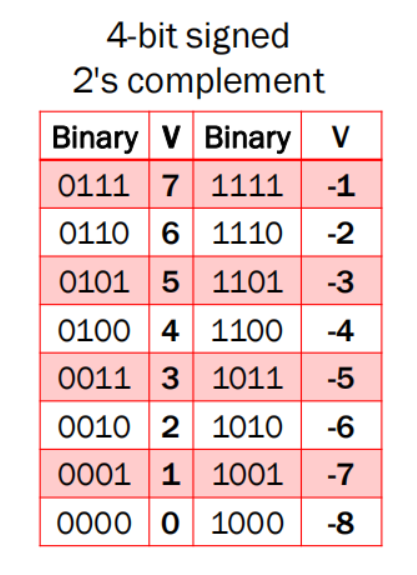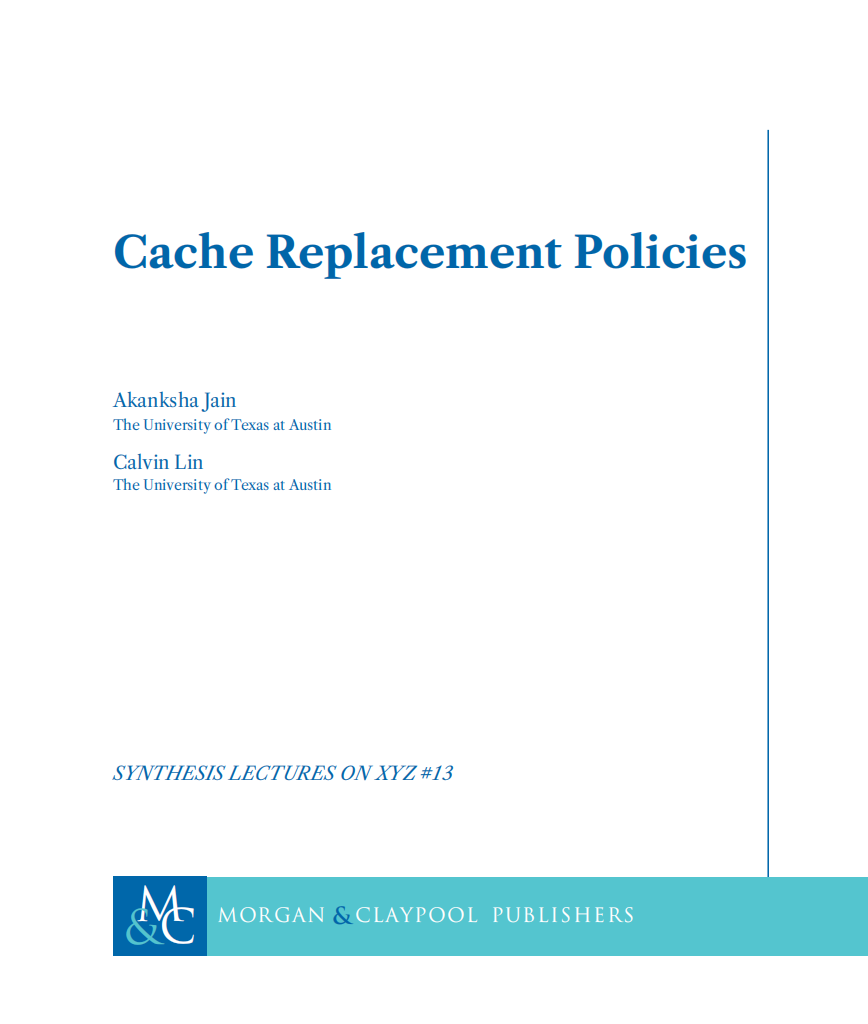DSD-2's Complement Representations
2’s Complement Representations
二进制补码数制表示负数
reference: P31
What is 2’s complement?
原数制是通过改变符号将一个数变为负数,而补码数制是通过补码来表示负数。也就是说一个数(10进制)的补码是这个数(10进制)的负数 负数不能直接读,判断一个负数是多大,必须用补码
n位数B的补码为2^n 的二进制数- B的二进制数
7(0111)=> -7(10000-0111)

对应码相加为10000(2^3)所以-4的码为 10000-4的后四位码
注意表示范围为(-8,7)$(-2^{n-1},2^{n-1}-1)$
Assume N bits are used, for a value –A,
2’s complement representation is defined as 2^N(1后面加N个0) – A
the MSB (leftmost) represents the sign(正负号) (bit)
0: positive
1: negative
简便算一个数的补码(负数的码)的方法:Invert all bits and add 1

举例:

Why 2’s Complement?
It eliminates the need of subtraction.
A – B = A + (-B) = A + (2’s complement of B)
把减法转为加法


-7没溢出 ▶ 丢弃最高位!
sign extension(符号扩展)

将4的码扩展一位表示符号(0-> +)取补后得到新的符号扩展位上仍然为对应的符号(1 -> -)

Overflow
Overflow happens when an operation produces a result outside the range that can be represented by N bits – either larger than the maximum or lower than the minimum representable value.
两个异号数相加肯定不会溢出
同号数相加看最高两位carry的值是否异号:异号溢出,同号不溢出(XOR)










